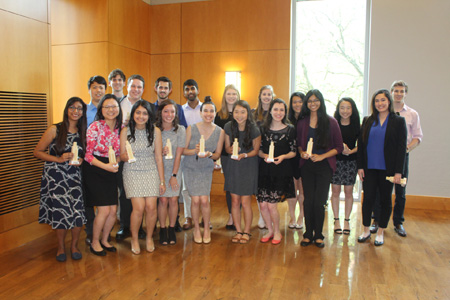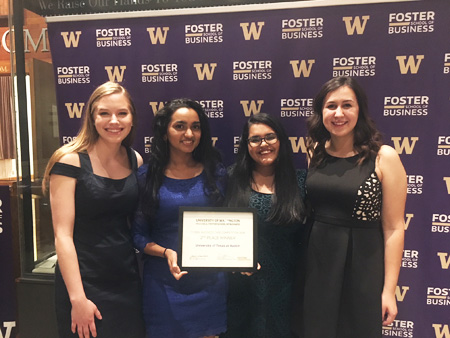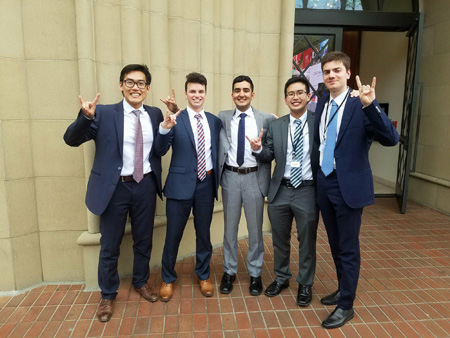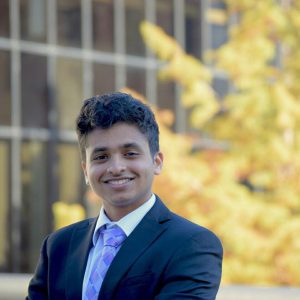Kobi Naseck will graduate this spring from Business Honors, Plan II Honors, and the Business & Public Policy Certificate Program. He is the president of the BEEVO Beekeeping Society. The organization, which was started in 2015 as a class project by three students, has now expanded in scope and has been successful in securing land on campus for beekeeping. Naseck and the group have been working to make the UT campus a more pollinator friendly space and decrease the stigma around bees and beekeeping in an urban environment.
Naseck discovered his passion for beekeeping during his freshman year. After graduation, Naseck will be headed to Green Corps, a one-year program that trains environmental organizers and places them on campaigns in different communities nationwide. “I’ve always been environmentally-oriented,” says Naseck. “One of my really good friends from my freshman year was one of the founders of the beekeeping society, and she asked me to help. At first it was help writing petitions for grants, or helping at the site, and it turned into me becoming a part of it.”
Now the president of the organization, Naseck is working towards a bigger goal. “We’re working to get UT certified as a pollinator-friendly campus. It’s an actual certification by an organization called Bee Campus USA. We’ve adopted their framework as part of our activities. It’s things like having more native plants on campus and having workshops to educate people. We also have a committee of faculty that talk about how to make UT a pollinator home by using less pesticides or less toxic pesticides. Essentially, it means that there’s a little more aesthetic beauty to campus. Native plants are a little prettier and there’s a lot of hedge space at UT, so it’s nice to have flowers too. If UT does complete this, we’d be the biggest campus to have this certification.”
The BEEVO Beekeeping Society also sells the fresh honey collected from the bees they keep. “The money we receive from honey sales pays for the extractors, which is the centrifuge we spin the honey out of, as well as the filter, buckets, gear we need, and landscaping. We have weekly hive checks where you can get your hands dirty, put on the suit, and interact with the bees. We’ve had over 250 people in UT community do hive checks, which they might not have done in their lives otherwise. In the process they learn a lot about bees and how we care for them, how it’s not as hard as they might think, and that there’s a space for bees and other pollinators to coexist on campus.”
His advice for students looking to branch out by exploring their interests is to take chances. “Don’t be afraid to cold-email someone or reach out. The beekeeping society has students of all different majors, and that’s one of the reasons why I like it so much. Don’t be afraid to reach out to people, especially because I think a lot of the organizations on campus are no-experience-needed, and there’s a place for you.”
Naseck believes that it is always worth it to pursue your passions. “The BEEVO Beekeeping Society brings together students, faculty, graduate students, UT staff and administrators, and landscapers. It’s a very interdisciplinary and diverse committee, and it’s one-of-a-kind. Don’t be afraid to let something surprise you,” says Naseck. “It may be something you didn’t know you could be passionate about. I never once in my life before thought I would spend so much time enjoying beekeeping. The most rewarding part of it has been meeting other students and creating relationships outside of who I see every day. I’ve learned just as much from them as I have from the bees.”
After completing the training program with Green Corps, the organization will help place him in a full-time position with an organization with an environmentally friendly mission.

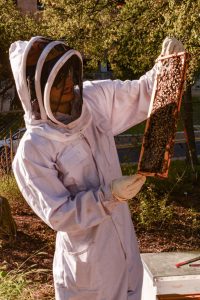
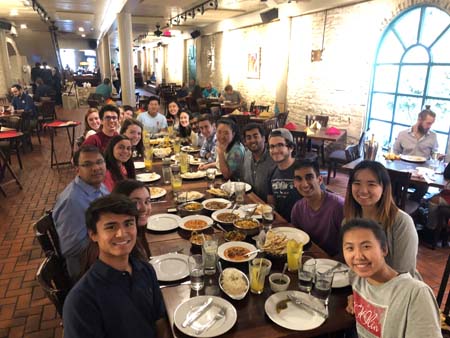
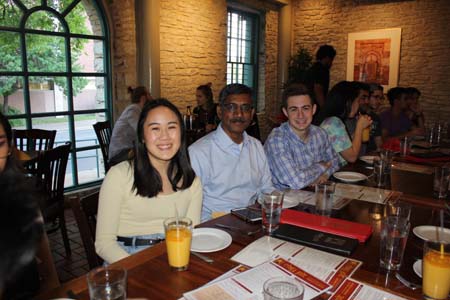 BHP freshman, Josh De Anda, says, “Dr. Konana talked about the value of a math or economics background in business, cultural differences he’s seen, and the state of American higher education.”
BHP freshman, Josh De Anda, says, “Dr. Konana talked about the value of a math or economics background in business, cultural differences he’s seen, and the state of American higher education.”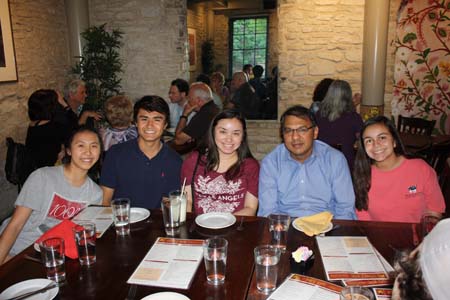
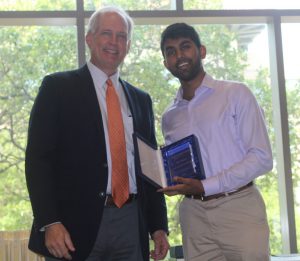 Rising Star Leadership Award – Sai Yeluru
Rising Star Leadership Award – Sai Yeluru
 Barbara Jordan Business Leadership Award – This award recognizes seniors who have been committed to leaving a legacy of mentorship, leadership and passion at the McCombs School. There are two students selected each year for this award.
Barbara Jordan Business Leadership Award – This award recognizes seniors who have been committed to leaving a legacy of mentorship, leadership and passion at the McCombs School. There are two students selected each year for this award.